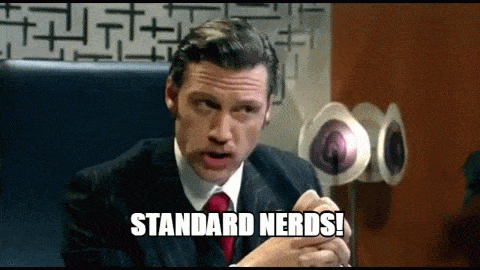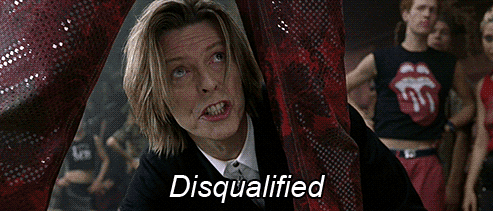This interview is more than just a check to ensure you are not a wacko.
I always disregarded the soft-skills interview as I consider myself a very talkative and easy-going person. The stereotypical programmer is introverted, socially awkward, and intellectual.
I recognize parts of me that match the standard nerd although I always considered myself normal enough to pass what I considered to be the psychopath test.
Behavioral interviews are there to check if you are a match for the company’s culture. A company’s culture is not constituted by its free lunch, Friday drinks, and game rooms. The culture of a company is its DNA.
Compatibility check
I’m not going to go too deep into what embodies a company’s culture but I will summarize it in a quote extracted from this blog post.
Culture is how we do things here and how people act when nobody is watching.
Interviewers will throw at you open-ended questions about your past experiences to understand who you are. Why not ask that directly? Because stories are a medium that most truthfully reflect our core values compared to just describing our strengths and weaknesses. Stories teach.
Let the story speak to the interviewer in its own way and skip the need to tell them what to think. An example of a situation where you exhibited a particular trait is much more convincing than an empty statement about your persona.
All these questions start with something similar to “Tell me about a time where…”
You received tough feedback
You had to provide tough feedback
You built out a process
You made a mistake
You proposed an idea and was not agreed on
You convinced someone to change their mind
You mentored someone
A project you were working on failed
You didn’t have enough resources but still had to deliver a project
How should we approach those types of questions?
The hero’s journey
This interview is all about telling a good story.
We are fascinated by stories. That’s the reason why we love watching movies and reading books. It’s critical that you pick good stories to illustrate your past experiences.
A good story does not have to depict you as a perfect person or employee. Think about it, would you like to see a movie where the main character is flawless? That would be pretty boring.
The heroes we love are fragile and flawed. They make mistakes and don’t always win. What we love about them is that each failure allows them to emerge stronger than before.
We do not learn from experience, we learn from reflecting on experience.
– John Dewey
It’s natural to try hiding your weaknesses during interviews but you shouldn’t. Self-reflection shows a person that wants to improve. You know you are not perfect, you know there are areas you should improve but you are a work in progress.
You should carefully prepare and pick the stories you are going to be using during the interview. Think hard about all your previous experiences because picking the right story to tell is not an easy task. You want to select a story that makes you look good but not perfect.
Think about stories where you…
Demonstrated initiative instead of just complaining.
Took risks but without being reckless.
Made a mistake while trying to do something with good intentions.
Led by example and inspired others.
Decided something that seemed right at the moment but ended up being the wrong call.
You might come up with a few potential stories that can answer each question. Select the ones that best showcase the reasons why you should be hired.
Preparing the stories is not considered cheating the interview. You will be advised before this interview to prepare these examples. It’s very challenging to come up with good examples on the spot. Use this opportunity to reflect on your career and what you’ve learned in each one of your jobs.
A good story needs only a good storyteller
Now that you have a few candidate stories, it’s time to write a script. You want to narrate the situation providing enough context but without going too deep into unnecessary details.
Some people suggest using the STAR method.
Situation
Task
Action
Result
I rather use an old-time classic like the three act structure. Such construction is used in every single good story ever told. Setup, confrontation, and resolution.
Telling the same story over and over helps you master how that particular story should be told. Use a friend to practice your story-telling. Explain the situation in around five minutes. Request them to ask questions if something is not clear. You need to get rid of the plot holes.
Think about the best stories you share with your friends or that story your grandpa always brings up at family reunions. Keeping a good pace is key. You want to speak slow enough so that the story is easily absorbed but not so slowly that the listener’s mind checks out of the room.
What is the cost of lies?
Dishonesty means instant disqualification.
Every lie we tell incurs a debt to the truth. Sooner or later, that debt is paid.
– Chernobyl, HBO
You might think that you don’t have any good stories to tell, that nothing truly remarkable happened to you at work. Perhaps you are considering inventing a story that shows you have all the ingredients the interviewer is looking after in a candidate.
I’m going to tell you why that’s a terrible idea. By doing this you are showing your interviewers a big fat red flag. Interviewers are pros. They had this interview hundreds of times before. They know how a good answer looks like and they can smell a false story from miles away.
There will be two or three nested questions about your stories. It will be impossible for you to maintain a credible lie. They will catch you red-handed and that’s the worst possible outcome of the interview.
Lying doesn’t benefit you or the company. You can only thrive in a workplace where you are a happy camper. If you are not a mutual match then trying to force the relationship through lies will manifest later on and will be painful for all parties involved.
The Miranda warning
If you are at this interviewing stage, you probably wrote your resume a few months ago and completely forgot about everything that’s mentioned in there. You might even have bent the truth a little bit to make your resume more attractive to recruiters. No one pays full attention to everything that’s written there anyway, right?
Anything you say can be used against you in court.
– Miranda warning.
During this interview, those things will come up. There is a possibility that you are requested to elaborate on any given sentence used in any part of your resume. For instance, if you mention mentoring other engineers four years ago, then be prepared to provide concrete examples about whom you mentored in the past and what was the outcome.
The following video is pure gold and the YouTuber gets the message across fantastically. A must watch 👇
Red flag detector 🚩
This interview tries to spot red flags.
It’s impossible to say if hiring someone will be a success. It’s much easier to judge if hiring this person is destined to fail at this particular company. That doesn’t mean the person is a failure, it just means that due to their personality, they are not a good fit for this one company. People are different and so do companies.
It’s all about finding the perfect match.






